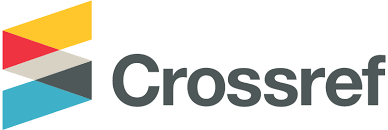ALTERNATIF MODEL KELEMBAGAAN REFINE: MODEL INOVASI KELEMBAGAAN KLINIK IPTEK MINA BISNIS
Abstract
Naskah ini, terkait dengan konsepsi Klinik IPTEK Mina Bisnis (KIMBis) dan Research Extension
Fisheries Community Network (REFINE). Keduanya merupakan inovasi kelembagaan yang bertujuan
menyebarkan IPTEK di daerah pedesaan. Konsepsi KIMBis telah diimplementasikan pada 15 lokasi.
Sementara implementasi dari konsepsi REFINE masih dalam wacana. Konsepsi dasar keduanya sangat
berbeda tetapi tujuannya hampir sama. Kelembagaan KIMBis dibangun melalui partisipasi berbagai
stakeholder dengan pendekatan bottom up. Sementara kelembagaan REFINE dikembangkan dengan
membentuk Kelompok Kerja (Pokja) pada tingkat pusat dan daerah, pendekatannya adalah top down.
Sumber informasi utama tulisan ini adalah pengamatan lapangan terhadap perilaku berbagai stakeholder,
serta laporan 15 lokasi KIMBis dan dokumen REFINE. Hasil pengamatan menunjukkan bahwa KIMBis
dapat dimodifikasi sebagai alternatif model kelembagaan REFINE. Modifikasi kelembagaan sebagai
penyebar inovasi ini tergantung pada kemauan politik dari perumus kebijakan. Selain itu fleksibilitas
lembaga tersebut juga memegang peranan penting dalam menarik pemangku kepentingan berpartisipasi
dalam kelembagaan itu. Kelembagaan berbasis masyarakat umumnya lebih mudah diimplementasikan
dibandingkan kelembagaan formal dalam bentuk Pokja. Fleksibilitas KIMBis membuat kelembagaan
tersebut berperan multi fungsi. Namun untuk memfungsikan KIMBis: sebagai sarana pemberdayaan
masyarakat berbasis IPTEK, sarana pengembangan ekonomi masyarakat berbasis IPTEK, sarana kerja
sama peneliti, perekayasa dan penyuluh dalam menerapkan dan menyebarkan IPTEK serta memperoleh
umpan balik untuk merenovasi IPTEK dan pendekatan yang dilakukan, sebagai tempat kolaborasi dengan
lembaga-lembaga yang sudah ada, SKPP, SKPD, Swasta dan LSM dalam mewujudkan kesejahteraan
masyarakat, dan sebagai laboratorium lapang aspek sosial ekonomi kelautan dan perikanan dihadapkan
pada berbagai kendala. Tingkat partisipasi berbagai pemangku kepentingan terhadap KIMBis sangat
bervariasi. Pada masa yang akan datang untuk mengembangkan KIMBis harus mengembangkan sosial
kapital dan interkoneksitas, agar partisipasi pemangku kepentingan dapat meningkat.
Title: An Alternative Institution Model for REFINE:
Inovative Institutional Model of the Klinik Iptek Mina Bisnis
This paper is associated with the concept of institutions innovation of the “Klinik IPTEK Mina
Bisnis (KIMBis)” and the “Research Extension Fisheries Community Network” (REFINE). The purpose of
both the institutions innovation was to spread the technologies at the villages communities. Recently, the
KIMBis concept has been implemented at 15 locations, while the REFINE concept still remains a plan.
The basic concept of both innovations are very different but the goals almost the same. The KIMBis was
built through the participation of a wide range of stakeholders with a bottom up approaching method.
Mean while, the REFINE was developed by forming working group (Pokja) at the provincial and the
district levels, known a top down approaching method. The main sources of the information for this paper
are based on the field observation tows the various stakeholders’ behavior, as well as the report of the
15 locations of KIMBis and the REFINE documents. The results show that KIMBis can be modified as
the alternative institution for REFINE. This modification depends greatly on the political will of the policy
makers. In addition, the flexibility of the institutions is also play an important role in an attracting the stakeholders to participate in the institutional program. In the form of working group, the society-based
institutions are generally easier to be implemented than the formal institution. The flexibility of KIMBis
will build a multi-functioned institution, such as the place for technology-based society empowerment;
the place for technology-based rural economic development; and a tool to develop the cooperation
among researchers, engineers, and extension officers in applying and spreading technologies as well as
obtaining feedbacks to renovate technologies and the approaching methods. The other functions areto
facilitate the existing institutions: SKPP,SKPD, private companies and NGO to create public welfare,
and as the field laboratory for the socio ecomonic aspects to support the development of marine and
fisheries. Recently, the level of participation of the stakeholders involved in the KIMBis activities vary
widely. In the future, the development of KIMBis need social capital and interconectivity strategies to
boost the stakeholders paticipation on KIMBis program.
Keywords
Full Text:
PDFDOI: http://dx.doi.org/10.15578/jksekp.v3i1.235
Indexed by:
---------------------------------------------------------------------------------------
Published by
Research Center for Marine and Fisheries Socio-Economic
in collaboration with
Indonesian Marine and Fisheries Socio-Economics Research Network
This work is licensed under a Creative Commons Attribution-NonCommercial-ShareAlike 4.0 International License.

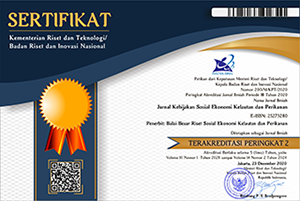
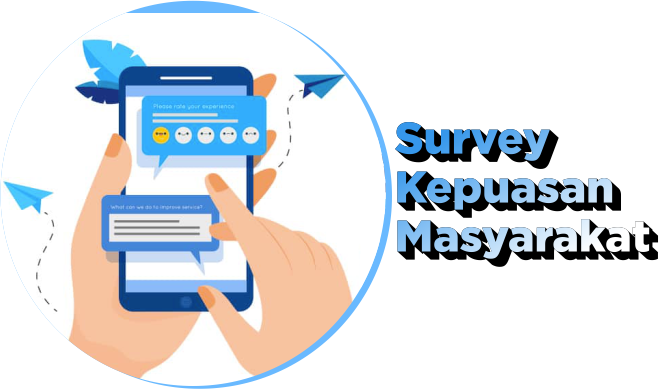
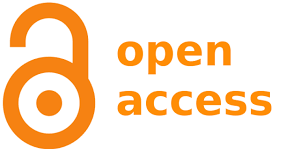






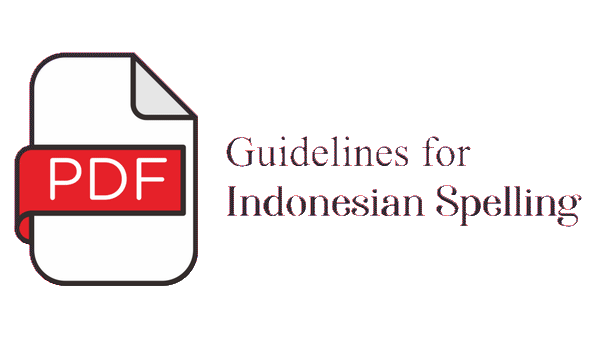
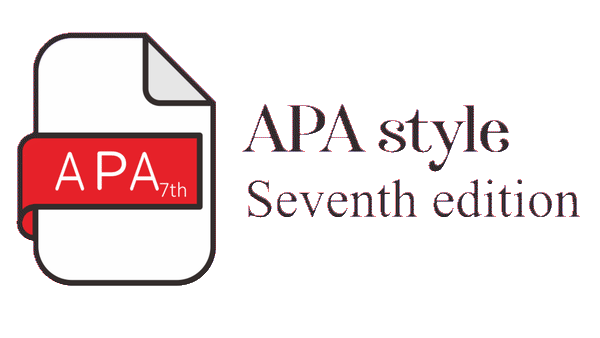


3.png)

